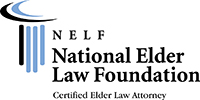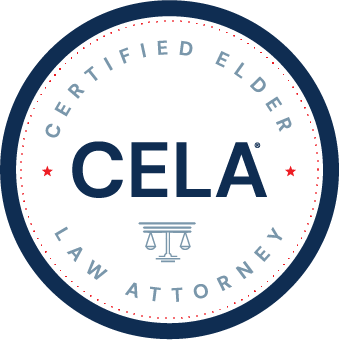The Colorado Guardianship Process
by Bradley J. Frigon
Why do I need a Guardianship?
There are a number of reasons that a person may want to seek a guardianship over another person. Two common situations arise when a parent has a child with a disability or a child has a parent who is no longer able to take care of his or her affairs.
If you are a parent of a child with a disability you may eventually reach the point where a guardianship is necessary. When your child reaches eighteen, he or she is automatically legally emancipated. Even though you have always been there, and even though his or her mental age probably hasn't changed, you no longer have the authority to make decisions for that child. These decisions include where your child lives and what relationships he or she enters into.
On the other end of the spectrum, children with aging parents may be faced with a parent who can no longer manage his or her affairs. If the parent has not executed valid durable medical and financial powers of attorney, the child will have no legal authority to deal with issues that arise on the parent's behalf.
In either of these situations, or at any other time when a loved one becomes incapable of caring for him or herself, a guardianship or conservatorship may be necessary. A guardian is responsible for the care of the individual and his or her healthcare and bodily decisions while the conservator is responsible for the financial decisions. These roles and processes are similar but there are important differences. This article will only provide an overview of the guardianship process.
How do I get a Guardianship?
You can only become a guardian for a person who needs help managing his or her affairs through a court order. The process first involves filing a petition, which asks the court to appoint a guardian. The petition is filed by an "interested person," which is a person who cares about the affairs of the person who needs help. The person who needs help is referred to as a ward and is a proposed ward until the guardianship is actually appointed. Colorado law lays out the order in which people have priority for appointment as guardian. The order of priority begins with the person nominated in a power of attorney. Next in line is the acting agent under a medical then a financial power of attorney. Third in line is the spouse or person nominated by the spouse. Fourth is the person's adult child. The list ends with the person's parent or a person nominated by the parent, or a person he or she has lived with for the past six months. Deviating from this list will require explanation to the court.
After the petition is filed, the court will appoint a court visitor whose role is to meet the proposed ward and explain what the legal proceedings mean and what will happen if a guardian is appointed. The visitor will also find out the proposed ward's feelings about the guardianship and will offer the opportunity to have a lawyer appointed to represent him or her. The visitor will then visit the place where the proposed ward will be living, meet with the prospective guardian, and will ensure that the prospective guardian understands his or her role.
At the end of this process, the court visitor will file a visitor's report with the court and make recommendations as whether they agree or disagree about appointing a guardian. The court visitor can also recommend that the court appoint a lawyer to represent the proposed ward's legal interests.
A hearing will now be scheduled with the court. The hearing, along with the opportunity to be represented by a lawyer, is important constitutional safeguards of the ward's rights, because the ward will lose the legal ability to make decisions if a guardian is appointed. At that time the court will review the evidence before it. Before it can appoint a guardian the court must clearly find that the proposed ward is an "incapacitated person" and that his or her needs cannot be met in less restrictive ways. An incapacitated person is defined by the law as one "who is unable to receive or evaluate information or both or make or communicate decisions to such an extent that the individual lacks the ability to satisfy essential requirements for physical health, safety, or self-care, even with appropriate and reasonably available technological assistance."
Once the court finds that the interested person has met the above standard the court may appoint a guardian. The court has broad latitude to determine the arrangements and can enter any other protective order in place of a guardianship. In many cases, however, the court will approve the proposed guardian.
What does it mean when I'm a Guardian?
Once you are appointed as a guardian your work is just beginning. You now owe a series of duties to different people. Your first duty is to the court. You must file a guardian's report within 60 days of your appointment and every year you remain guardian. This report gives information about your ward's health including any physical or mental conditions, diagnoses and prognoses. It includes your personal care plan for the ward, plans for any treatments or therapies, and plans for future care. It will also ask you for any other information that should be brought to the court's attention.
You also owe duties to your ward, which will depend on the circumstances of your case. You may need to decide where your ward lives and goes to school and when he or she goes to the doctor or receives medical care. You will need to meet the basic daily needs of your ward, including food, clothing and shelter. Under Colorado law you are normally not personally liable for the financial needs of your ward but you can become liable if you do not state that you are acting as a guardian or make a personal guarantee in your individual capacity.
Your duties to the ward may have been limited by the court and there are other limitations in the law. You cannot provide authorization to involuntarily receive treatment for mental illness, developmental disability, or alcoholism. The general philosophy of guardianship law is that you should exercise only so much of your powers as guardian as are necessary. The idea is to allow and foster the ward to develop the highest degree of independence and self-esteem possible under the circumstances.
You may also be compensated for serving as a guardian out of the funds of the ward. The law does not set out a particular fee schedule but requires that the fee is fair and reasonable considering the time spent and the outcome obtained. Some guardians only seek reimbursement for expenses while others seek hourly compensation. If you wish to seek compensation you must keep a record of your time spent acting as guardian, including descriptions of services performed.
It is extremely important that you follow the rules for guardians set out in the law. You could face contempt of court and sanctions if you do something forbidden by the court order appointing you. If you don't disclose that you are representing your wards you may be personally responsible for their debts. If you enter into transactions with your ward you may face liability from others for improper transactions. These, along with numerous others, are potential pitfalls facing a guardian who does not understand all of the rules imposed by Colorado law.
How do I stop being a Guardian?
The guardianship process is often terminated by the death of the ward as many wards require care for their entire lives. However, you or the ward can also seek to terminate the guardianship or ask the court to appoint another guardian and relieve you of that responsibility.
Terminating a guardianship, other than by death of the ward, can only be accomplished by court order. A court proceeding will be required to wind up the guardianship and you can seek court approval of your actions and a discharge of liability. A court order is also required if you plan to move the ward out of the state. Once you receive this court order you will no longer be liable for your actions as guardian and you will be released from your duties. The court will then appoint another guardian who will have these duties or the court will terminate the guardianship and the former ward will regain the legal ability to make decisions.
Conclusion
Guardianship proceedings can be full of complicated issues and they span the entire process, including getting appointed, serving, and terminating a guardianship. The powers and duties of a guardian are broad and present potential pitfalls. This overview can only scratch the surface with regard to the information you will need to know if you are appointed as a guardian.
If you wish to try to get a guardianship over a family member or loved one it is important to get advice and in depth information from a trusted source. This is equally true if you need assistance in making decisions as guardian or in terminating a guardianship. We are always happy to answer questions or assist you with your legal needs related to the guardianship process.
Learn more
Learn more by browsing our Probate Litigation.
Call (720) 200-4025 now or email us to find out how our attorneys can help with your Guardianship & Conservatorship issues.












